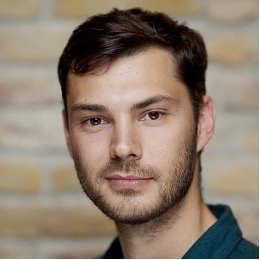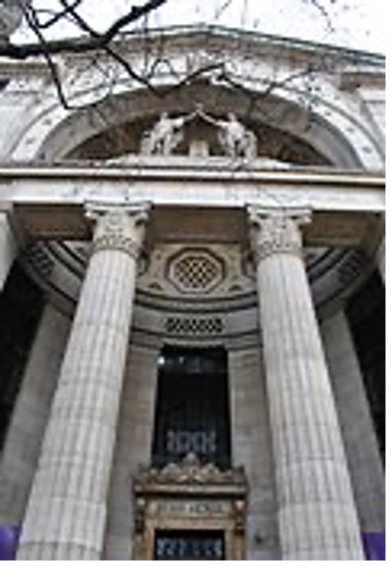In the latest in our #PhDone series we caught up with Dr. Steve Westlake.
Steve (he/him) was a Faculty of Arts Scholarship-funded PhD Student at the University of Bristol, originally from West Wales. Steve studied for his BA in History at Emmanuel College, University of Cambridge and his MA in Comparative History at Central European University, Budapest. Alongside his studies, Steve has worked in the Higher Education Careers and Employability sector, as well as for the educational social enterprise Write On Point.
Q: Hi, Steve. First of all, congratulations on your successful viva! Can you tell us a bit about what your doctoral research was about?
Thanks! My thesis was entitled ‘An “Oxfam of the Mind”? Humanitarianism, Overseas Development at the BBC World Service, 1965-1999’.
It explores the recent history of the BBC’s overseas broadcasting arm, in particular its role as a humanitarian and overseas development actor. In 1999, United Nations Secretary-General Kofi Annan described the World Service as ‘perhaps Britain’s greatest gift to the world in the twentieth century’ – a description which the BBC is very proud of, and has often repeated ever since.
 My work critically evaluates this characterization of the World Service as a ‘gift to the world’, focusing on its interactions with a range of governmental and non-governmental actors within the interconnected fields of humanitarian, human rights, and overseas development between the mid-1960s and the end of the 1990s. Through close analysis of recently declassified or previously unstudied official documents from the BBC and FCO archives, newly collected oral history testimony from former World Service staff, and World Service-related source material located drawn from the NGO sector, it demonstrates how the World Service succeeded in sustaining itself through this period despite the numerous challenges to its existence and status.
My work critically evaluates this characterization of the World Service as a ‘gift to the world’, focusing on its interactions with a range of governmental and non-governmental actors within the interconnected fields of humanitarian, human rights, and overseas development between the mid-1960s and the end of the 1990s. Through close analysis of recently declassified or previously unstudied official documents from the BBC and FCO archives, newly collected oral history testimony from former World Service staff, and World Service-related source material located drawn from the NGO sector, it demonstrates how the World Service succeeded in sustaining itself through this period despite the numerous challenges to its existence and status.
It argues that the World Service carefully but consistently deployed the language of humanitarianism and human rights, alongside new forms of overseas development activity, to help it to navigate three closely related long-term challenges: the end of empire, the conduct and sudden conclusion of the Cold War, and the emergence of new, neoliberal modes of governance on both the national and international stage.
Q: How did you become interested in international broadcasting?
I first got interested in international broadcasting while studying for my Master’s degree at Central European University in Budapest. During my studies I spent some time working at the university-affiliated Open Society Archives, which is home to a major collection of material relating to Radio Free Europe and Radio Liberty, US-funded radio stations which broadcast to Communist Europe during the Cold War. I got interested in comparing Radio Free Europe and the BBC’s approaches to broadcasting to this part of the world, and wrote my Master’s thesis on Radio Free Europe and the BBC World Service’s treatment of human rights activism. While doing this research at the OSA and at the BBC’s Written Archive Centre in Caversham, I realised just how much material there was not just on the World Service’s interest in human rights, but also about a variety of different overseas development projects it had run which had yet to be featured in the existing scholarship.
I thought this could be the basis for a project which challenged our perceptions of the World Service’s role as a supposedly ‘objective’ and ‘universal’ broadcaster.
Q: What did you enjoy most about your project?
I’d say two things – the places I got to visit, and the people I got to meet. Firstly, I was able to travel to some wonderful places to conduct archival research or attend conferences or summer schools, including returning to Budapest to research at the OSA, working on the Oxfam collection at the Bodleian Library in Oxford, the National Archives in London, presenting at conferences in Liverpool, Birmingham, and Santa Barbara in California, and a truly fantastic two-week Global Humanitarian Research Academy summer school in Mainz and Geneva co-hosted by the Institute for European History and the International Committee of the Red Cross.
Alongside the fantastic friends and colleagues I met through these trips, I also interviewed twelve former BBC World Service employees as part of the project, many of whom had not been asked to provide their memories and testimony as part of any previous history of the BBC. Being able to ensure that the viewpoints of figures who have often been marginalised or overlooked within the BBC’s history (such as those who only worked at the World Service for a short time, never took on a senior management role, or were overlooked on the basis of their gender or nationality) were included within my work was a real highlight.
Q: Any top tips for lunch spots near your archives?
It’s a bit of a niche shout, but if you ever get the chance to eat at the Staff Canteen of the International Committee of the Red Cross’s HQ in Geneva, do. Who knew that humanitarians were in need of such lavish (and presumably donor-subsidized) dinners.
Q: Let’s talk about the viva itself. What would you advise someone who is preparing for their own viva?
My viva was ultimately a much more relaxed and enjoyable experience than I had expected it to be. Have faith in the fact that nobody knows this work better than you!
It’s a good idea to prepare answers to likely questions, for example why you decided to pursue your thesis project, why you chose the methods or sources that you did, what you think your main contribution to knowledge is – this will help you feel more at ease.
Also, don’t be afraid to ask your own questions of your examiners about which parts of the thesis they found most persuasive or compelling and why – this can be great feedback if you’re planning to do something with the thesis after viva like turn it into a book or article(s).
Q: What’s next for you? Where can we find your research and/or writing now?Alongside my studies, I’ve been working at the University of Bristol’s Careers Service since April 2021 as a Careers Support Officer, which I’ve really enjoyed. I recently moved to Cardiff with my partner, where I’m about to take up a new role working at Cardiff Metropolitan University as their International Employability Officer.
I’m taking a bit of time to think through how (or whether) I want to continue with my historical academic work: I published an open-access article in Twentieth Century British History last year on the BBC’s ‘Marshall Plan of the Mind’ project in the 1990s, and am thinking about whether I want to adapt the thesis into a book.
Thanks for joining us, Steve!

